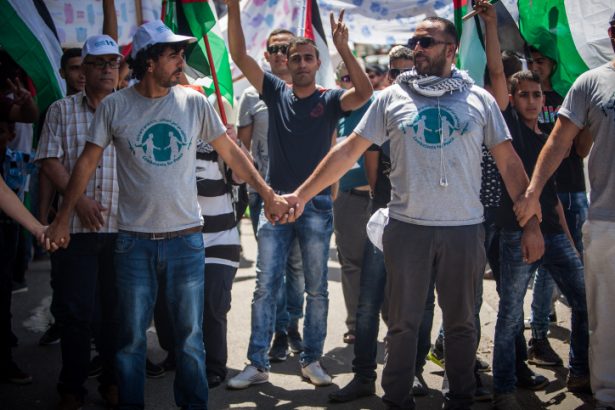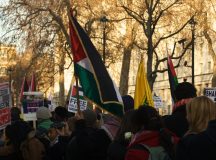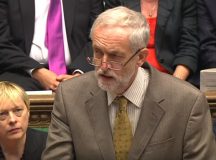There isn’t an Israeli-Palestinian conflict in the way that many outsiders seem to think, as the New York Times writer Matti Friedman has argued. He says that zooming in to frame the problem ‘as an Israeli-Palestinian conflict makes as much sense as describing an “America-Italy conflict” of 1944’. Friedman’s observation highlights Labour’s need to fully understand the complex mosaic of conflicts, interests, enemies and allies across the Middle East.
Despite its undoubted importance, the Middle East features less and less in Western foreign policy. As if to underline this point, the UK government’s recent integrated review of security, defence, development and foreign policy seeks an Indo-Pacific tilt, although as the New Statesman’s Jeremy Cliffe has suggested: ‘Global Britain will be decided not in the Indian Ocean or the South China Sea but in the Baltic, Black Sea and the Mediterranean.’
At the same time, deep popular disaffection with ‘forever wars’ and the shale revolution that has made the US the world’s largest net oil and natural gas exporter is driving American disengagement from the region in favour of what Barack Obama once called ‘nation-building here at home’. That process – begun under Obama, entrenched under Donald Trump and likely to be continued by Joe Biden – also gave the green light to greater involvement by Russia and China. China’s recent $400bn, 25-year defence and economy pact with Tehran could boost the longevity of the pestilential Iranian regime. However, the Biden administration faces increasing pressure to invest more heavily in the Middle East peace process.
The Corbyn legacy
The recent Open Labour pamphlet, A Progressive Foreign Policy for New Times, roots Corbynite foreign policy in anti-imperialist perspectives formed during the Cold War, national liberation struggles and opposition to repressive American interventions in the 1960s and 1970s. When the Soviet bloc collapsed in 1989, ending the ‘two-campist’ division, a new binary – ‘the west against the rest’ – emerged. It was subsequently reshaped and revitalised by military interventions, notably the Iraq war. The hard-left Stop the War Coalition (STWC), which Jeremy Corbyn chaired from 2011 to 2015, neglected conflicts not directly attributable to ‘the West,’ reflecting an inability to see actors other than the US and its allies as having motives or powers. Moreover, its worldview couldn’t accommodate situations where Western inaction, rather than Western intervention, was decisive in unfolding violence. In Syria, it was almost wholly silent about the role of Russia or Iran, and even the Assad regime itself. This caused an impasse for Corbyn’s foreign policy, stricken by profound, but often unspoken, contradictions that were too deep to be solved in time to develop principled and strategic responses to new events. This view largely explains why Corbyn – and, after his leadership victory in 2015, the Labour frontbench more generally – majored on issues within his ideological comfort zone, such as Palestine, Turkey and Yemen while ignoring the malign domestic and overseas agenda of the Iranian regime. It helps explain why the Labour leadership struck a distinctly ambivalent stance during the 2017-18 protests throughout Iran. It tells us why the Kurds were largely abandoned when they fell victim to the machinations of the Islamic Republic and its proxy militias that bolstered a vengeful Baghdad government when it violently seized Kirkuk and sought to emasculate Iraqi Kurdistan in October 2017. Pro-Western Kurds in Syria and Iraq, after all, simply didn’t fit neatly into the hard left’s Manichean view of the world. And it also throws light on Corbyn’s studied silence on repression by forces such as Hamas and Hezbollah, as well as the disastrous demarche on Russia using a toxic weapon in Salisbury.
Deep divisions and differing ideological traditions between the hard left and Labour’s mainstream were exemplified when Corbyn and his then shadow foreign secretary, Hilary Benn, spoke against each other in the House of Commons debate in December 2015 on allowing Royal Air Force jets to defend the Kurds from Islamic State in Syria. Benn, who resigned within a few months, framed military support for the Kurds within Labour’s anti-fascist tradition. Open Labour rightly argues that ‘the response of the Stop-the-War left to each and every major conflict the world over typically represents little more than a nostalgia trip getting the band back together for one last riff on the Iraq years’. It is high time for some new tunes on foreign policy.
Amplifying the voices of allies
Scholars of international relations once posited a billiard balls theory whereby hermetically sealed states occasionally hit others. This, however, ignored the complex skein of relations that is more like a spider web. The Kurds, for instance, are about 40 million people in four countries that comprise half the population of the Middle East and North Africa. What happens in south-eastern Turkey and northern Syria affects those in Iran or Iraq.
But if nations are not homogenous billiard balls so internal actors can be our allies in helping to make the Middle East more free, progressive and democratic. There are huge challenges and much depends on a combination of internal leadership and external support. Labour, in opposition and in government, should, of course, talk with governments, but we should also seek to amplify the views of allies and like-minded actors.
These should include the likes of trade unionists, Saudi women’s activists and Iranian dissidents. We should support self-determination, talking about the impact of Israel’s occupation on the Palestinian people. But we should also talk about Hamas’s atrocious human rights abuses, especially towards women and LGBT people, and the Palestinian Authority’s (PA) heavy-handed attitude towards dissent and journalists.
Indeed, one of the most troubling aspects of the Corbyn years was the obsessive focus by many on the actions of Israel while wilfully neglecting the suppression of activists by both Hamas and the PA. The plight of the people of Gaza is appalling and the stringent measures put in place by Israel and Egypt following Hamas’ violent coup in 2007 bear some of the responsibility. But placing the responsibility solely at the feet of Israel does not allow us to recognise how Hamas has terrorised not just Israelis but also Gazans themselves. Last year, for instance, Hamas military prosecutors in Gaza charged three Palestinian peace activists from the Gaza Youth Committee with ‘weakening revolutionary spirit’ for their role in holding a video call with Israelis.
This is but one small example of the suppression of dissent in which Hamas excels. ‘Hamas security forces and militants regularly carry out arbitrary arrests and detentions,’ Freedom House reported last year. ‘The court system overseen by Hamas generally fails to ensure due process, and in some cases civilians are subject to trial by special military courts.’ Freedom House noted, too, that Hamas applies the death penalty – 16 new death sentences were issued in 2020 – without due process or adequate opportunities for appeal. Trade union activities are curtailed, freedom of assembly restricted and social media closely monitored, and journalists arrested, interrogated and, in some cases, beaten and tortured. ‘Hamas makes little effort to address the rights of marginalised groups within Gazan society,’ Freedom House argues, noting especially the position of women and LGBT+ Gazans.
Similarly, while Hezbollah represents a very real threat to Israel and the Israeli people, it is also a key player in upholding Lebanon’s corrupt and inept political system, the weakness of which it both encourages and benefits from. Thus, when protests erupted in the country in 2019 calling for an overhaul of the political system, action to tackle the economic crisis and an end to government corruption, Hezbollah was at the forefront of the effort to crush them. Its chief, Hassan Nasrallah, both denounced the protests and then sent hundreds of supporters onto the streets to harass and attack the demonstrators. They were unleashed both in Beirut and in Hezbollah strongholds such as Tyre and Nabatieh, showing the degree to which the terror group feared being challenged on its own turf by a movement that had crossed Lebanon’s deep sectarian divides.
These are just a few examples of a multitude of issues which a values-driven, confident progressivism should concern itself with. A simple principle – one of consistency – should underpin this approach.
A practical model for how we might do this is Labour Friends of Iraq (LFIQ), which I helped to establish in 2004. It sought to unite those with opposing views on the 2003 war behind the cause of the fledgling Iraqi trade union movement. Once the biggest movement between Europe and Australia, it was almost completely crushed by Saddam Hussein’s brutal ‘republic of fear’. Saddam’s overthrow allowed the rebuilding of that movement. LFIQ worked with Iraqi unions to oppose a motion at the 2004 Labour Party Conference in favour of withdrawing British troops. The unions’ international representative explained that, while they hadn’t invited the troops in, they wanted a say over when they left. The unions feared that premature withdrawal would create a security vacuum that would suffocate Iraq’s democracy and civil society. The motion was easily defeated and the conference agreed an alternative motion, which encouraged Labour activists to park their differences in favour of helping the unions and the democratic process in Iraq. LFIQ’s achievement was to simultaneously critique the conduct of the occupation and put union solidarity on the agenda by challenging the STWC, which denied in theory what was happening in practice – the birth of a new non-sectarian labour movement – and whose leaders ratted on brave Iraqi comrades threatened and murdered by sectarian forces.
‘The choice of comrades’
By focusing almost entirely on the supposed evils of the West and, at best, ignoring, or, at worst, lionising those defined as friends because they are enemies of the West, the hard left cultivated the notion that the UK could do no good in the Middle East and encouraged non-intervention of all sorts. The usual mix of ‘Hands Off’ and ‘Troops Out’ slogans was frequently wheeled out at the expense of those who sought political and military support from the West. Clearly positive successes were routinely ignored.
But is it right that we take a backseat while millions seek justice in what can be seen as intractable conflicts? The decade-long Syrian civil war, in which tens of thousands have died and many more have been driven from their homes, reminds us that non-intervention can have a heavy price. The late doyen of international relations, Fred Halliday, further countered this in his book 100 Myths About the Middle East. He argued that all Middle East states are modern creations, suggesting that: ‘The history of peoples is not national but cosmopolitan; not one, as nationalist myth would have us believe, of separate blocs gradually and belligerently getting to know each other, but of a constant process of cultural and commercial interaction, redefinition of boundaries and mutual enrichment.’ While there has never been a golden age of thoughtful left thinking on foreign policy, poor analysis has been amplified by the inane bubbles of social media and in the reconfigurations after the end of the Cold War – the initial hubris, the emergence of Islamism and especially 9/11, the interventions in Afghanistan, Iraq, Libya, and a much more rudderless international political system.
A good starting point for rethinking left-wing foreign policy is the work of the veteran American political thinker, Michael Walzer. His seminal essay, Can There be a Decent Left?, scorns the ‘rag-tag Marxism’ that turns ‘world politics into a cheap melodrama, with all the villains dressed to look the part and one villain larger than life’ rather than the advocacy of secular enlightenment, human rights and democratic government. He urges political responsibility when our values are attacked physically because we should join willingly and constructively in debates about how to defend the country. He concludes that ‘if we value democracy, we have to be prepared to defend it, at home, of course, but not only there’. Walzer’s 2018 book, A Foreign Policy for the Left, is a magisterial ‘post-Marxist account of a more nuanced politics and a more open-ended search for allies’. He cites Ignazio Silone’s phrase – ‘the choice of comrades’ – which challenges those who, in the aftermath of the invasion of Iraq, saluted ‘the Iraqi Maquis’ which murdered union leaders and electoral registration officers or who have argued that ‘we are all Hamas’. Our ‘choice of comrades’ should instead be the region’s workers, women, youth, human rights activists, academics, environmentalists and small entrepreneurs. British activists who want to help such reformers are small in number but can make a difference. Solidarity is inevitably made difficult by language, distance, and diasporas. But many interlocutors speak English well and online methods developed during the pandemic will help.
When thinking about its future approach to the region in government, Labour should develop an integrated foreign, development and security policy focused on the hard work and long haul of advancing the rules-based and institutional frameworks that enable a stronger and more independent civil society, the rule of law and democracy. We should consider ways to provide technical assistance to encourage independent and professional journalism, increased government transparency, reliable statistics, training of public representatives, better education and universities, policy conferences and training overseas and in the UK, and boosting film sectors to diversify economies and help people’s stories go global. The British labour movement can complement this work by providing training, as I have seen Unison undertake in Kurdistan. Union acumen cannot be magicked out of thin air but national and international unions can do much to allow activists to apply lessons from abroad at home, and learn something themselves too. Governments and voluntary groups are keen on securing third party validation. Diasporas should be listened to, with respect but caution. Older members, after all, left their homelands in distress and they may not always appreciate how they have changed in the intervening years and decades. Some others purporting to represent people back home have scant experience of life there and over-simplify situations without any responsibility to advance peaceful co-existence and because extreme stances better cut through and raise funds. New generations, however, are often keen to play a positive role. Solidarity activists must tread carefully. As Walzer writes, ‘Support for dissidence does not mean support for every dissident position. Politics is the art of distinction.’ Activists should therefore offer a mutually respectful partnership. Activists need to show solidarity in emergencies while also engaging in an informed, two-way intellectual discourse with comrades of choice and like-minded governments about what is doable or desirable in any given situation.
The Middle East is vast and complex and Britain’s relationship with the region has often been fraught. We should therefore beware of those at home who respond to its challenges by offering placard-like slogans and easy answers. But caution should not be an excuse for inertia or despair. Labour, and the left more widely, should instead engage in an effort to better understand how we can show solidarity – practical, not just rhetorical – to those in the region who share, and, often at great personal risk, wish to advance, our common values and principles.





































